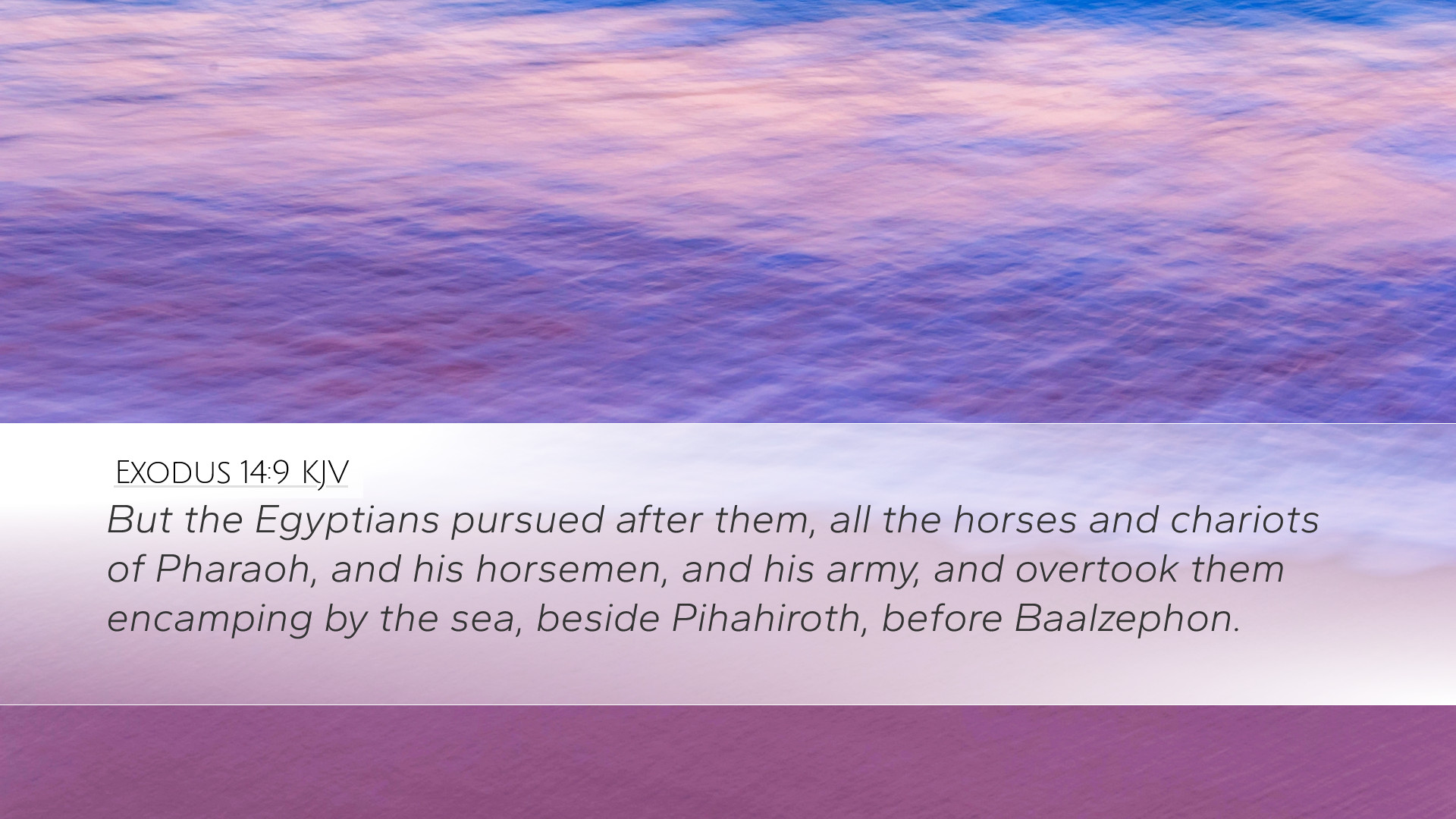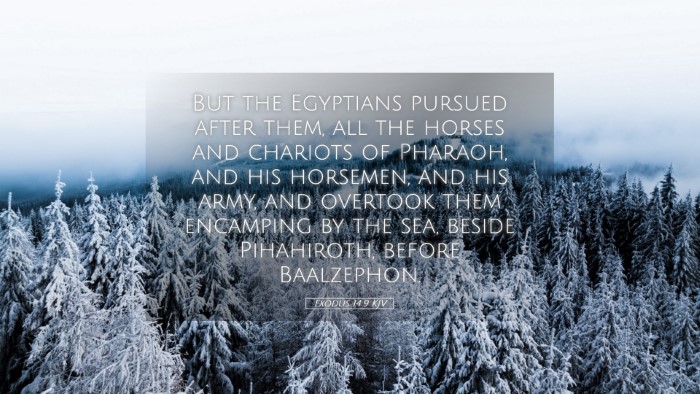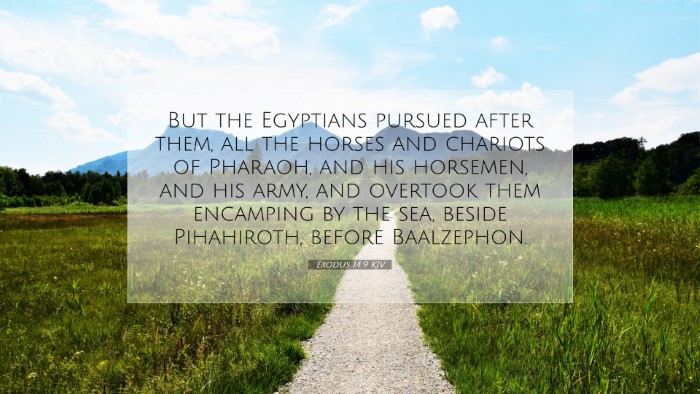Commentary on Exodus 14:9
Exodus 14:9 states, "But the Egyptians pursued them, all the horses and chariots of Pharaoh, and his horsemen and his army, and overtook them, encamping by the sea beside Pi-hahiroth, before Baal-zephon."
This verse is pivotal in the narrative of Israel's deliverance from Egypt, emphasizing both the desperation of Israel and the relentless pursuit of Pharaoh. The implications of this pursuit are deep and multifaceted, providing rich material for reflection and study.
Context and Background
After enduring centuries of harsh oppression in Egypt, the Israelites had been liberated through the signs and wonders performed by God through Moses. However, as they journeyed toward the Promised Land, Pharaoh's heart was hardened, and he pursued them with a powerful military force. The context of this verse highlights a critical moment in the drama of liberation.
Analysis and Insights
-
The Pursuit of the Egyptians
The relentless pursuit of the Egyptians is a manifestation of Pharaoh's obstinacy and rejection of God's sovereignty. As Matthew Henry notes, "The Egyptians pursued them with a zeal that was wrought by their own loss." Pharaoh, having faced the consequences of his stubbornness, seeks to reclaim his labor force at all costs.
This illustrates the spiritual warfare that often accompanies divine deliverance, a theme seen throughout scripture.
-
The Symbolism of the Sea
The encamping by the sea beside Pi-hahiroth and Baal-zephon holds significant symbolic meaning. Adam Clarke suggests that the sea represents a boundary between freedom and bondage, a point of transition for God’s chosen people. It is at the sea that God's power will be displayed in a profound way, setting up a dramatic confrontation.
-
The Power of God’s Deliverance
This verse foreshadows the miraculous events that will unfold as God intervenes on behalf of the Israelites. Albert Barnes emphasizes that, although they seem trapped with the sea before them and the enemy behind, God's intervention demonstrates that "with Him, all things are possible." The tension built in this moment highlights reliance on divine intervention, a theme integral to the life of faith.
-
Theological Implications
The narrative invites theological reflection on God’s providence, sovereignty, and the struggle between good and evil. The Egyptians stand as a representation of the world system in opposition to God. This verse can prompt discussions among theologians regarding the nature of human opposition to divine will.
As noted by Clarke, the Egyptians' pursuit symbolizes the spiritual battles believers face against sin and opposition.
-
The Response of the Israelites
As the Israelites witness the advancing Egyptians, their fear and despair become palpable. This emotional response is crucial to understanding their character and faith journey. Matthew Henry points out that fear often clouds our vision, leading to doubt in God’s promises. This moment highlights the tension between faith and fear, an experience mirrored in the lives of many believers today.
Practical Applications
For pastors and theologians, this verse serves as a reminder of the faithfulness of God amidst trials. It also calls upon leaders to prepare congregations for moments of crisis, helping congregants to trust in divine deliverance when situations appear dire. The narrative encourages believers to recognize the power of God working within their “impossible” circumstances.
Conclusion
In conclusion, Exodus 14:9 is more than an account of pursuit; it serves as a profound lesson in faith, resilience, and divine deliverance. Drawing on rich commentaries from figures like Matthew Henry, Adam Clarke, and Albert Barnes, we are reminded of God's sovereignty and the importance of unwavering faith in the face of overwhelming odds. As we explore this passage, we are invited to reflect on our own experiences of deliverance and to trust in the God who fights for His people.


